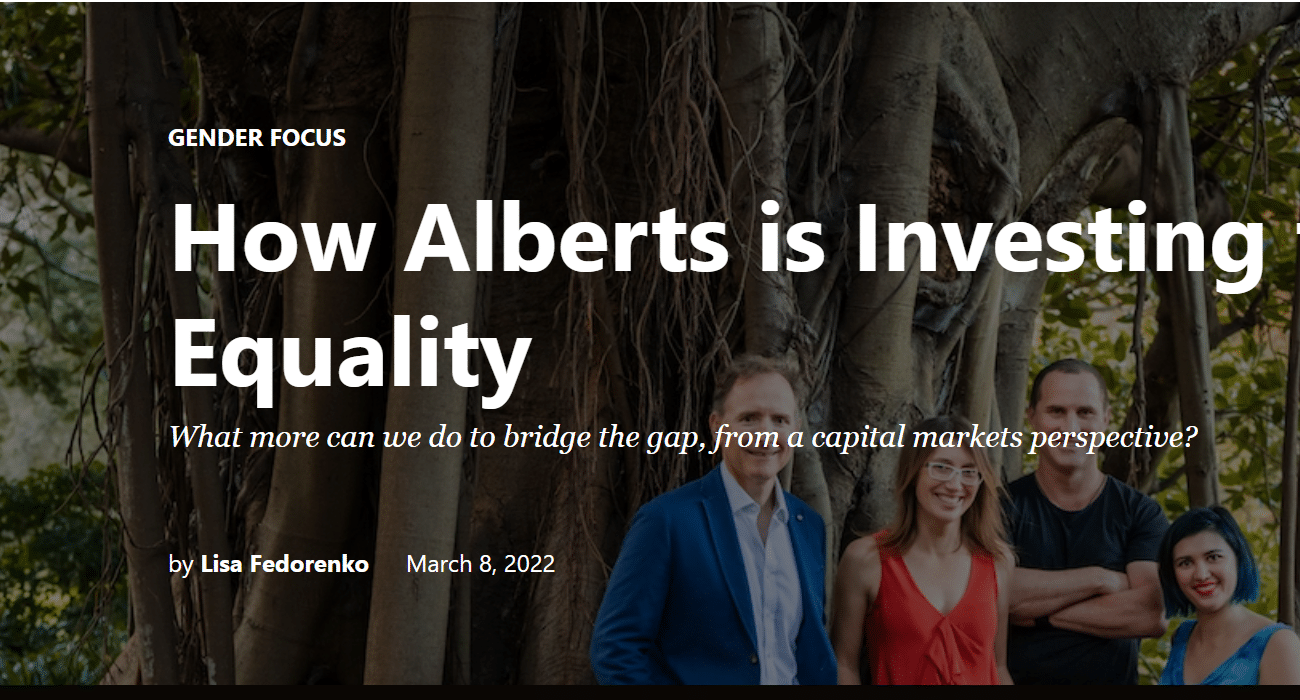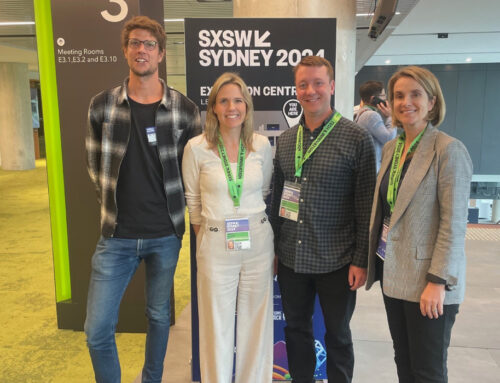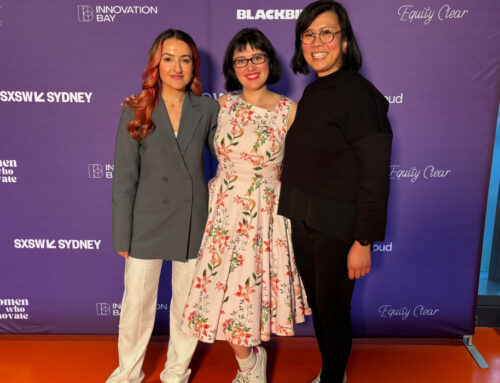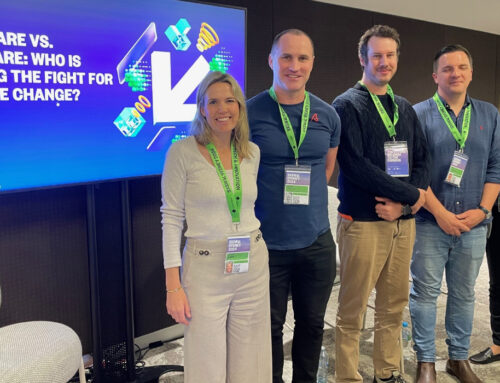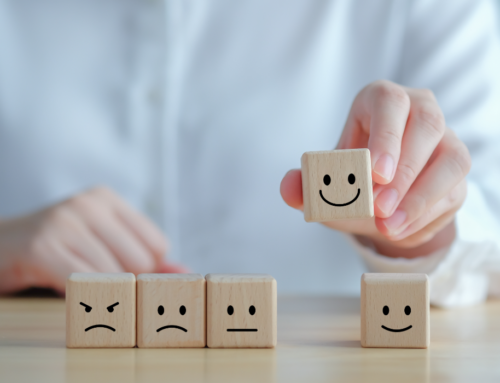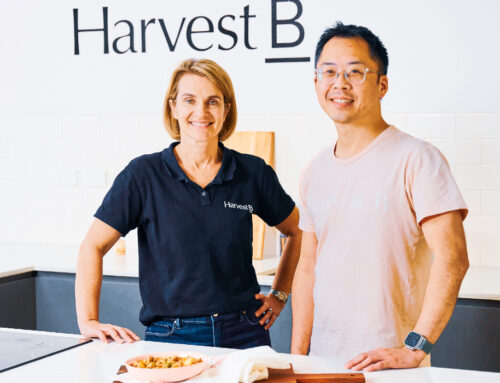We’ve identified gender equality (the 5th SDG) as a key impact theme for Albert Impact Ventures. On Impact talks about how we’re targeting this problem here.
“Equality is about ensuring that every individual has an equal opportunity to make the most of their lives and talents. It is also the belief that no one should have poorer life chances because of the way they were born, where they come from, what they believe, or whether they have a disability. Equality recognises that historically certain groups of people with protected characteristics such as race, disability, sex and sexual orientation have experienced discrimination” Equality Human Rights
At Alberts, one of our core values is “everyone’s welcome”, we are passionate about creating a level playing field for all people. More on why we’re focused on this area here. Outside of internal policies and initiatives to support equality, we are directly investing in startups working to solve for this space.
Investing for equality is an emerging space with less defined sub-themes and models for ventures success. As such, we approach it with an inquisitive note and are keen to lean in on founder insights to other commercial opportunities. At this stage, we have decided to focus our attention on solving the 5th UN sustainable goal, gender equality, with a view to addressing equality more broadly in the future. Within gender equality we have noticed seven emerging investible spaces at the intersection of impact and financial returns:
- Women’s Sport:
- Women make up 40% of athletes, butreceive 4% of total sports media coverage making it difficult to earn a living. Sport can be empowering, improves visibility and leadership. We are looking at businesses that level this playing field.
- If we invest in women’s sport we can help grow the industry, improve media coverage, wages and conditions. More women playing sport will lead to improved health and wellbeing outcomes and increased confidence and social connection for participating women of all abilities. Increased opportunities for women to pursue a career in sport and to expect the same level of remuneration for such as their male counterparts will increase the number of women pursuing this as a career and elevate how it is ‘valued’ in society.
- Valuing Care:
- Women are disproportionately affected by parental leave, domestic duties and the mental load which hinders their ability to reach their full potential. A lack of financial value placed on this productivity contributes to the financial gender divide. We are looking for companies that are creating more equitable work-practices and looking for ways to reduce the household load to level this playing field. We point to our board chair, Sam Mostyn’s recent address where she highlights why “CEW[1]believes that we need to put care at the centre of our economy”[2].
- If we invest in companies that lighten the mental load and explicitly value care, we will give women more time and headspace to devote to other activities such as their education, careers and self-care which will ultimately lead to greater wellbeing and productivity as well as improved gender equality in the workplace and home. We expect to see commercial opportunities due to the productivity gains for businesses and the potential to create a new market that recognizes the value in domestic functions.
- Product Design:
- The world has not been designed with equality in mind (e.g. touch screens originally didn’t recognize dark skin, office temperatures are calibrated to men, women are more likely to be injured in car collisions as crash dummies were initially calibrated to male bodies). This creates opportunities for products to optimize for underserved demographics.
- If we invest in products designed for women then women will have to adjust standard products less to their needs, leading to improved productivity, a better sense of community and better health and wellbeing outcomes.
- Life Cycle:
- There is growing research that gender differences commence at childhood (gendered toys), continue throughout the lifecycle (less STEM participation, safety issues) and compound at end of life (superannuation gap, poverty). We look for ventures specifically targeting systemic issues throughout a woman’s life-cycle.
- If we invest in removing gender barriers that exist at different stages of a human life cycle, from birth (e.g. Lego for girls) to retirement, then we can create a more even playing field for women and evoke a cultural change towards justice.
- FinTech:
- The gender pay gap is still 14% and the super gap is 47%[3], despite women living longer. We are looking for companies taking innovative approaches to measure and close these gaps.
- If we invest in FinTechs improving wealth outcomes for women we will narrow the superannuation gap and help more women achieve financial independence. FinTech opportunities can be extremely lucrative and we see space for FinTech with purpose opportunities.
- Visibility:
- Women and minorities are poorly represented in media (2.24 men per women in films, few heroines in books, news coverage) and in leadership roles. Chris Wallace points out “well into the 21st century men are still writing two of every three opinion pieces, two of every three political stories, and almost nine of every 10 sports stories”. There’s significant evidence that seeing role-models like oneself can lead to growth, and we know it can be hard to be what you can’t see. We are looking for businesses that level the representation of minorities in media and art.
- If we invest in companies improving the visibility of women we will increase confidence and inspire more women to consider a range of paths and opportunities to reach their full potential.
- Safety Consent:
- Half of women in Australia experience sexual assault[4]. This has clear detrimental mental health and wellbeing effects and is a drag on society. We are seeking ventures working on fixing this safety and education gap.
- If we invest in businesses seeking to increase safety for women and/or explain/teach consent we will reduces instances of safety and consent violations thereby improving women’s mental health and wellbeing. This will lead to second order effects improving wellbeing, participation and productivity.
We’d love to hear from any founders working on these problems with scalable venture solutions, we’re also curious and keen to hear of other emerging trends in this space. If you’re working on one of these problem sets please get in touch with us here.
[1] Chief Executive Women
[2] Source: https://cew.org.au/sam-mostyn-aos-address-to-the-national-press-club-of-australia/
[3] In Australia
[4] Source: https://www.abs.gov.au/media-centre/media-releases/half-all-women-and-quarter-men-sexually-harassed
